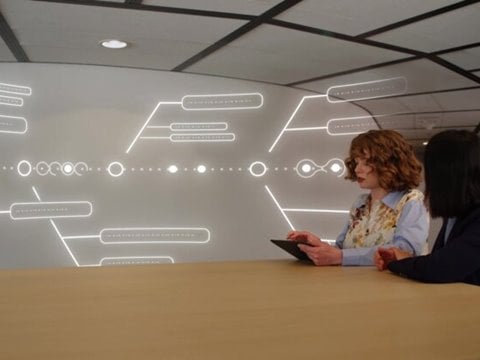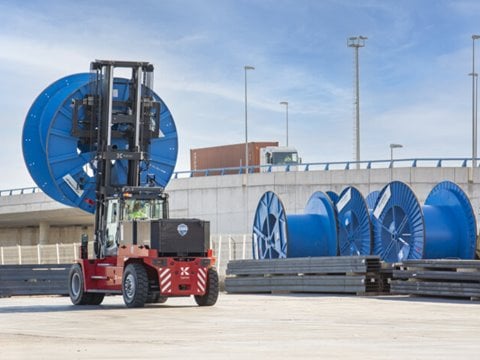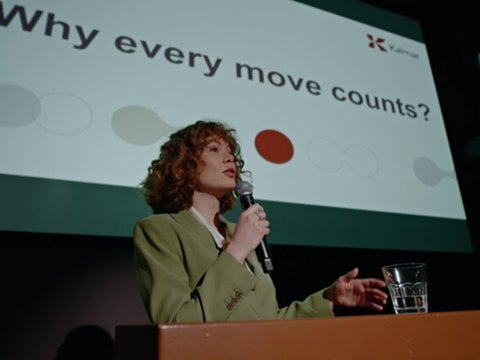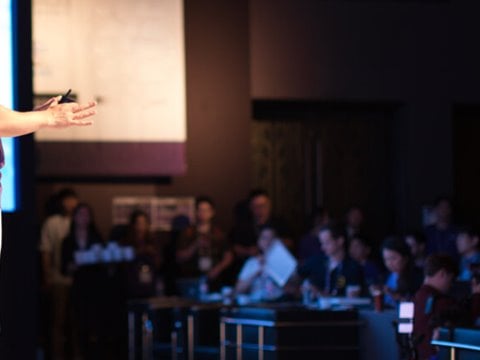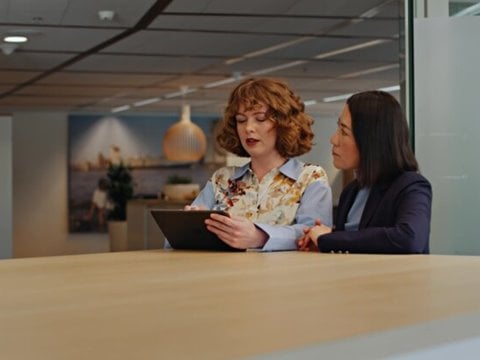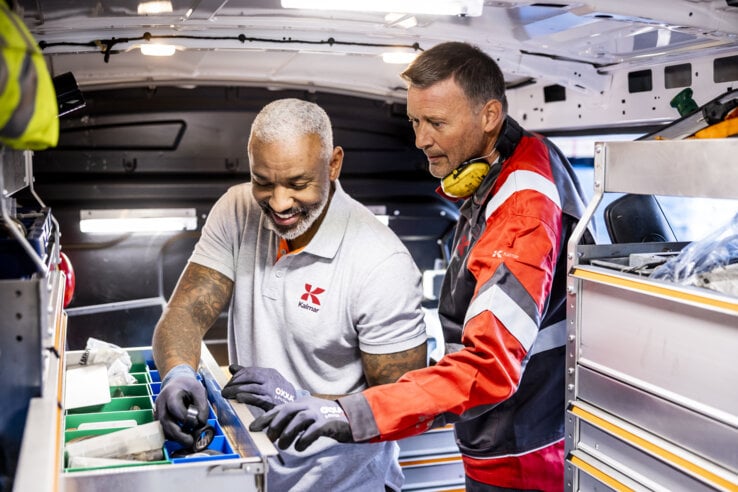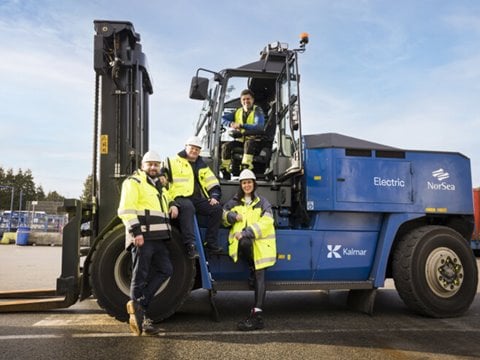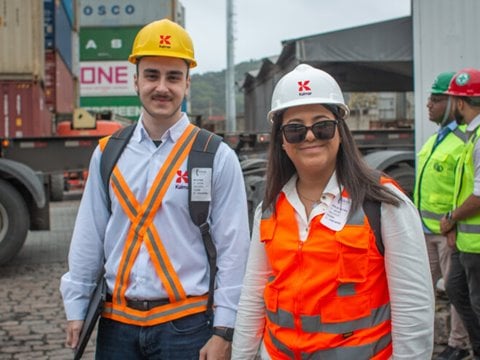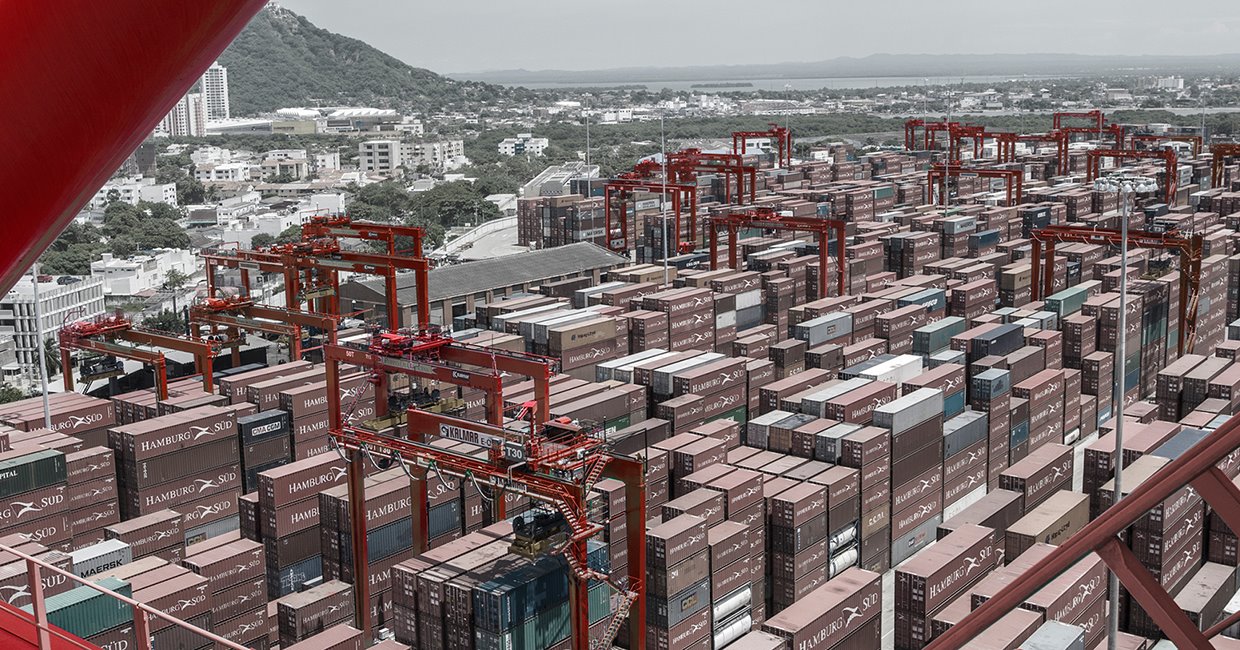
Anchors away on Port 2060
The Port 2060 project is the brainchild of recent difficult times in the shipping industry. Over the past two years the global financial crisis hit the industry hard as consumers tightened their belts and global traders responded with cutbacks in buying, shipping and equipment. Yet it was this less than rosy outlook that spurred Ismo Matinlauri and his team to start looking towards the future..
Simple ideas, complex transformations
It was around about the same time that Ismo got from his kids a reference book about the birth of the shipping container. He realised how far things had come in fifty years, and he started to think that actually maybe what everyone needed to do was to start thinking a little further into the future. “This book made me realise that the big picture is such a long-term thing,” says Ismo “yet it’s so easy to get stuck in the problems of the short-term”. Out of this philosophy, Port 2060 was born.
“The idea of the project is to be totally open-minded, to encourage everyone –both inside and outside the industry – to look forward, to imagine, to get inspired,” explains Ismo. “No idea is too big or small. The simplest of ideas can lead to the most influential changes.”
Indeed, the simple invention of the shipping container not only shaped the industry, but shaped the socio-economic relations which are at the centre of our modern, globalised society. “Containerised shipping was truly the driving force behind globalisation from the 1950s onwards,” explains Ismo. “It brought down traditional trade barriers and changed the way products were valued. National industries evolved on this basis, research, technology and trading hubs developed, and world trade – and our high-tech, culture – became what it is today.”
Better, faster, smarter, greener…
So what does Ismo Matinlauri see in his vision of Port 2060? According to him it’s all about intelligent control. “Modern IT allows us to do so much, and we’re continuously making advances which help us to better know where everything is and what’s happening at any time” he says.
The increased use of “green tech” or environmentally sustainable, energy saving and energy generating technologies is also an area where imagination and innovation are needed, stresses Matinlauri, and the Port 2060 project doesn’t want to pull its punches; “If you think environmental unsustainability means the end of the shipping industry, then bring it to the table. We want to be completely open about the problems as well as the possibilities.”
Lastly, Ismo points out that in 50 years’ time there could be limitless new materials and technologies. The shipping industry largely has to rely on the R&D capabilities of other industries, such as automobile, defence or aeronautics as it simply doesn’t deal with the enormous volumes that justify millions in research investment. He clarifies, “we can’t develop our own engines when we only need two thousand of them and the automobile industry needs tens of thousand”. But luckily, the industry is not an isolated one. “We test, copy and adapt technology from other industries. The pace of technological advances really does mean that anything is possible. “
And essentially that’s what the Port 2060 is about – exploring the possible, the impossible, the problems, the controversies and the daydreams. Ismo Matinlauri sums up: “We have no expectations, no boundaries – and we can’t afford to take ourselves too seriously. We just want people to open their minds and start dreaming. You never know what we might come up with together.”
Related articles
Further reading
Subscribe and receive updates in your email
Subscribe